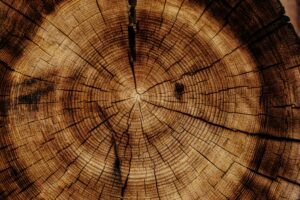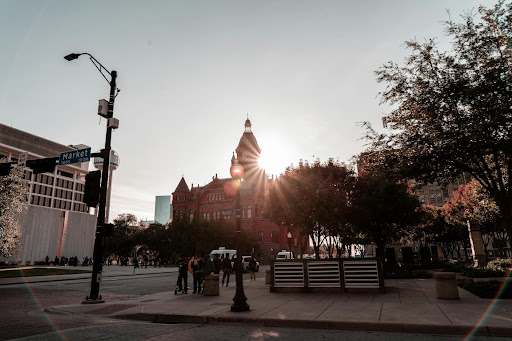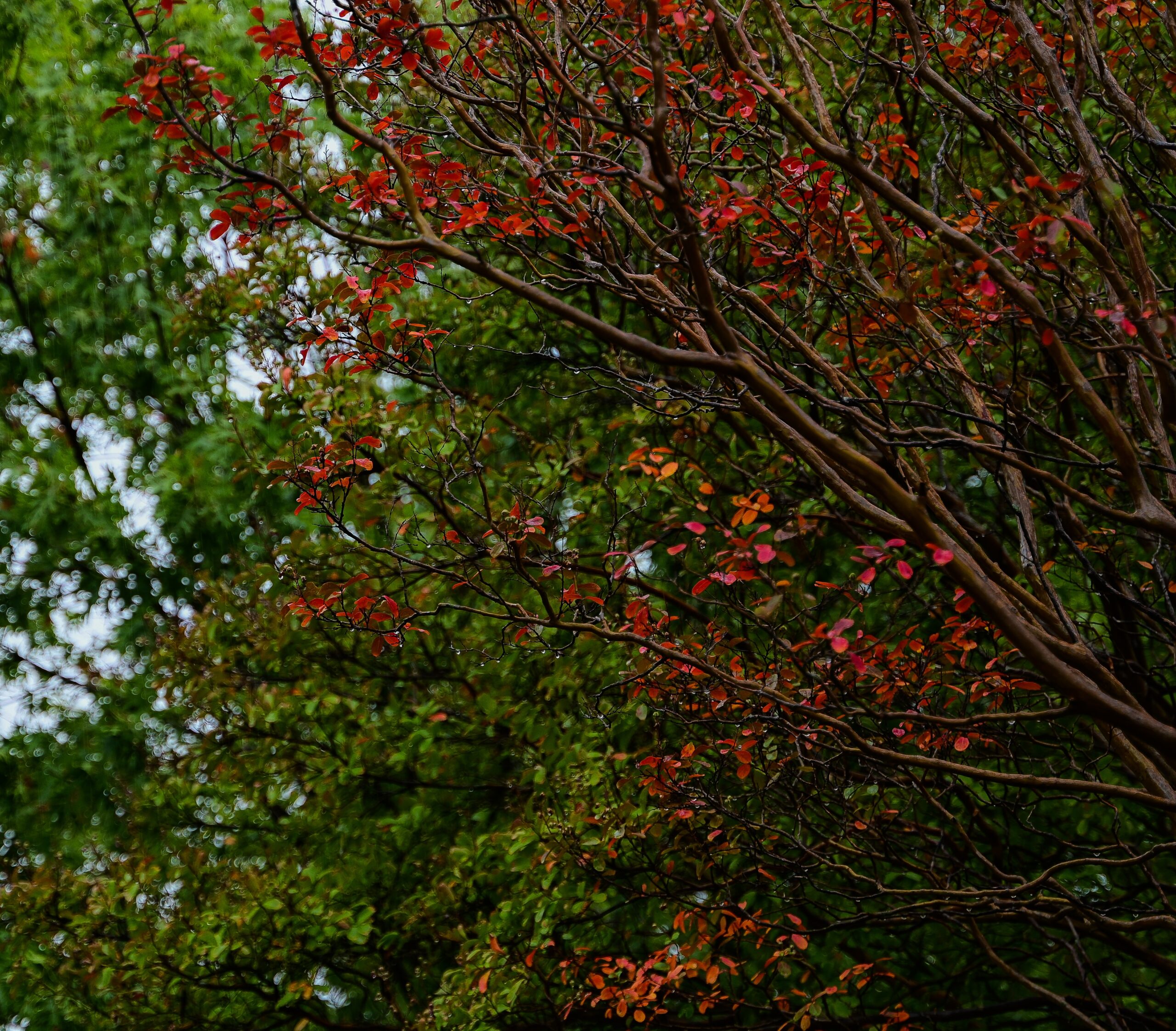Date May 15, 2024
In the bustling urban landscape of Dallas, where development and green spaces intersect, the importance of conducting tree surveys before construction cannot be overstated. Tree surveys in Dallas serve as critical tools for planning and executing construction projects that are compliant with local regulations, environmentally responsible, and community-friendly. This detailed exploration highlights why accurate tree surveys are indispensable in the pre-construction phase, ensuring that development harmonizes with the natural environment while preventing potential legal and environmental issues. Discover how TreeNewal’s expert tree survey services can help your Dallas construction projects comply with local regulations and embrace environmental responsibility, ensuring a harmonious integration of development and nature.
Understanding Tree Surveys
A tree survey is an essential tool for developers, architects, and environmental planners. Conducted by certified arborists or ecological consultants, these surveys provide a wealth of detailed information about the trees within a specified property. This data is crucial for making informed decisions during the planning and execution phases of construction projects, ensuring that development harmonizes with the existing natural environment. Below, we delve deeper into the four core components of a tree survey:
Species Identification
This aspect of the survey involves identifying the various species of trees present on the property. Each species is noted for its unique botanical characteristics, which can significantly impact how it interacts with its surroundings. Understanding species is crucial not only for biodiversity records but also for determining the right care and protections each tree needs. Some species may be more susceptible to disease, while others might be legally protected due to their rarity or cultural significance.
Health Assessment
The health and vitality of each tree are carefully evaluated during a tree survey. This assessment includes checking for signs of disease, pest infestation, and general tree vigor. Healthy trees are more likely to survive and thrive during and after construction, while diseased or weak trees may pose risks to the project or require intervention. Health assessments help prioritize which trees need treatment, preservation, or, in some cases, removal to safeguard the overall project and nearby plant life.
Dimensional Details
Accurately measuring the physical dimensions of trees is another critical component of tree surveys. This includes documenting the height, trunk diameter, canopy spread, and root system extent. These measurements are vital for understanding the physical impact of trees on the planned construction. For instance, large canopy spreads might influence building placement, landscaping decisions, and local microclimates, while extensive root systems could affect foundation safety and underground utilities.
Location Mapping
Precisely mapping the location of each tree relative to the proposed construction area is perhaps one of the most critical aspects of a tree survey. This detailed mapping helps planners visualize the spatial relationship between trees and construction elements. It aids in making strategic decisions about building orientation, the placement of roads, and utility paths to minimize the impact on existing trees. Additionally, location mapping is essential for creating effective tree protection plans during the construction phase, ensuring that machinery and construction activities do not harm valuable tree assets.
By integrating these detailed components into a comprehensive tree survey report, stakeholders in construction projects can ensure that they are making informed decisions that respect and preserve the natural landscape. This not only aids in regulatory compliance but also promotes sustainability and enhances the long-term success of development projects in tree-rich environments like Dallas.

The Role of Tree Surveys in Construction
Tree surveys play a pivotal role in various aspects of construction planning:
Compliance with Local Regulations
- City Ordinances: Dallas has specific ordinances that protect certain trees and require mitigation if they are removed. A tree survey ensures that construction plans are compliant with these laws.
- Permit Acquisition: Many construction projects require an environmental permit that can only be obtained if a tree survey is conducted.
Environmental Impact Assessment
- Ecosystem Preservation: Trees are vital for maintaining local ecosystems. Surveys help identify which trees can be preserved and outline measures for protecting them during construction.
- Sustainability Practices: Incorporating the existing trees into new developments enhances sustainability and reduces the carbon footprint of construction projects.
Community Relations and Aesthetics
- Maintaining Aesthetic Appeal: Preserving mature trees can significantly enhance the visual appeal of a new development, which can be appealing to future residents or businesses.
- Community Goodwill: Projects that consider environmental impacts tend to receive more positive responses from the community.
Benefits of Conducting Accurate Tree Surveys
Accurate tree surveys bring several benefits to construction projects:
- Risk Management: Identifying potential hazards related to tree health and stability can prevent future property damage or injury.
- Cost Savings: Understanding tree positioning and health can reduce unexpected costs associated with tree removal or relocation.
- Enhanced Planning: Provides developers and architects with necessary information to design around important natural features, potentially increasing property value.
Key Components of a Tree Survey
A comprehensive tree survey for a construction site in Dallas typically includes several key components:
- Tree Inventory: A list of all trees on the property, including species, health, and measurements.
- Tree Preservation Plan: Recommendations for which trees should be preserved and how to protect them during construction.
- Impact Assessment: Analysis of how the construction will affect each tree and what steps can be taken to mitigate negative impacts.
- Arboricultural Method Statement: A detailed plan on how to carry out any proposed works near trees, including timelines and techniques.
Challenges in Tree Surveys
Despite their importance, tree surveys can present challenges:
- Complex Regulations: Navigating the various regulations regarding tree protection in Dallas can be complicated.
- Technical Requirements: Conducting a survey requires specific technical skills and tools that may not be readily available to all construction teams.
- Dynamic Conditions: Changes in project scope or unexpected findings during construction can require surveys to be updated or redone.
Choosing the Right Professionals for Tree Surveys
Selecting the right professionals to conduct tree surveys is crucial for their success. Criteria for selection should include:
Certifications: Ensure that the professionals are certified arborists with experience in ecological assessments.
Local Experience: Knowledge of local species and Dallas-specific regulations is essential.
Reputation: Look for professionals with a track record of accuracy and reliability.
Conclusion
Tree surveys are more than just a regulatory requirement; they are a fundamental part of responsible construction practices in Dallas. By ensuring that these surveys are accurate and comprehensive, construction projects can avoid legal repercussions, minimize environmental impact, and enhance their integration into the existing urban fabric. For construction projects in Dallas, investing in high-quality tree surveys is an investment in the project’s long-term success and sustainability. Companies like TreeNewal, with years of expertise in tree surveys for construction in Dallas, offer valuable services that can make a significant difference in how construction projects are planned and executed, aligning development with environmental stewardship and community values.
To ensure the success and sustainability of your Dallas construction projects, it’s essential to integrate comprehensive tree surveys right from the planning stage. TreeNewal, with its extensive experience since 2017, specializes in providing detailed tree surveys for construction in Dallas, ensuring that your development complies with local regulations, enhances environmental sustainability, and preserves the natural beauty of your site. Opt for TreeNewal’s expert services to make informed decisions that protect both the urban forest and your investment. Reach out today to align your construction plans with the best environmental practices.








